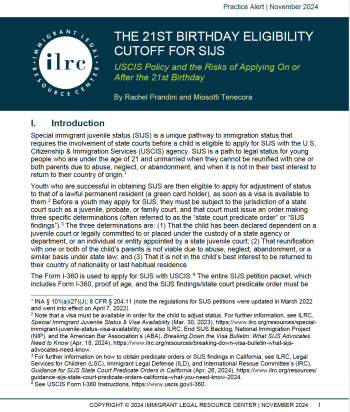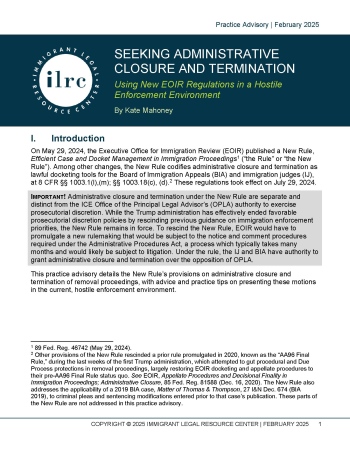
New EOIR regulations published in 2024 now allow immigration judges and the BIA to administratively close or terminate removal proceedings in a variety of scenarios. These regulations permit—and sometimes require—administrative closure or termination even where the Department of Homeland Security does not agree. In the current hostile enforcement environment, and in light of the rescission of formal guidance regarding prosecutorial discretion, these regulations are an important tool for advocates seeking to get clients out of removal proceedings.
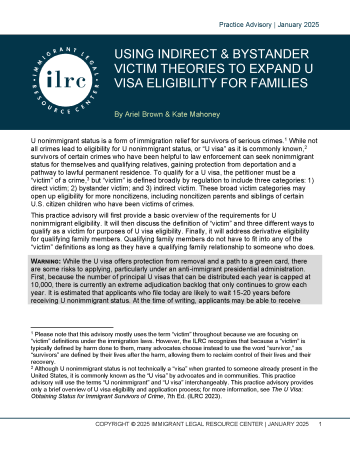
Eligibility for U Nonimmigrant Status, commonly known as the “U Visa,” hinges on whether the applicant has been the “victim” of a qualifying crime. The regulations implementing the U visa statute contemplate three categories of “victims” who may qualify for the U visa: direct, bystander, and indirect victims. This practice advisory provides a basic overview of the requirements for U nonimmigrant eligibility. It then discusses the definition of “victim” and three different ways to qualify as a victim for purposes of U visa eligibility. Finally, it addresses derivative eligibility for qualifying family members.
Under current USCIS regulations, any person under 21 years of age who otherwise meets the eligibility requirements may be granted SIJS. This practice alert addresses many of the unsuccessful arguments that USCIS has not accepted when a petition received by USCIS after the youth turns 21. In rare cases, USCIS has accepted petitions received after the petitioner’s 21st birthday when there is proof that the petition was improperly rejected or receipted by USCIS before the deadline. This practice alert primarily focuses on USCIS Administrative Appeals Office (AAO) decisions and limited federal court cases to highlight successful and unsuccessful arguments when the SIJS petition is filed on or after the youth’s 21st birthday.
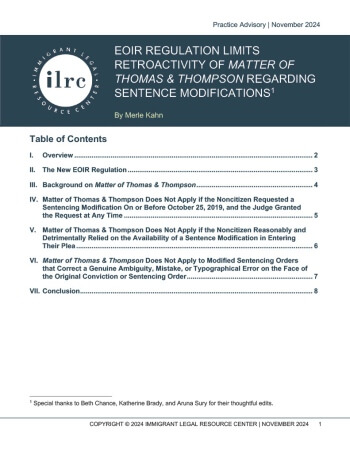
EOIR Regulation Limits Retroactivity of Matter of Thomas & Thompson Regarding Sentence Modifications
On October 25, 2019, the Attorney General published Matter of Thomas & Thompson holding that adjudicators could only recognize a sentence modification for immigration purposes where the sentence was vacated due to procedural or substantive defect as defined in Matter of Pickering. It was not clear whether this holding was retroactive. Under new DOJ regulations it is now clear that Matter of Thomas & Thompson is not retroactive. Adjudicators will recognize a sentence modification as vacating the sentence for immigration purposes where: (1) the person filed for the sentence modification on or before October 25, 2019; (2) the person relied on the availability to seek a sentence modification where the conviction date was on or before October 25, 2019; (3) there was a clerical or typographical error in the sentence regardless of the date of entry of the sentence; or (4) where the sentence was vacated due to a procedural or substantive defect in the sentencing - regardless of when the sentence modification was filed.
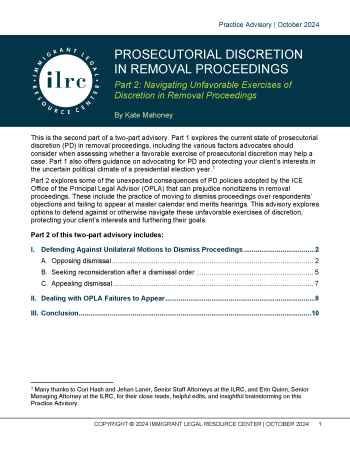
Part 2 of this 2-part advisory explores some of the unexpected consequences of PD policies adopted by the ICE Office of the Principal Legal Advisor (OPLA) that can prejudice noncitizens in removal proceedings, including the practice of moving to dismiss proceedings over respondents’ objections and failing to appear at hearings.
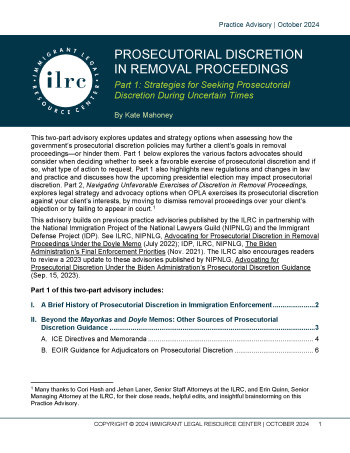
Part 1 of this 2-part advisory provides updates on DHS’s prosecutorial discretion in removal proceedings and explores the various factors that advocates should consider when deciding whether to seek a favorable exercise of discretion from the ICE Office of the Principal Legal Advisor (OPLA). Part 1 also highlights new regulations and discusses how the upcoming presidential election may impact prosecutorial discretion.
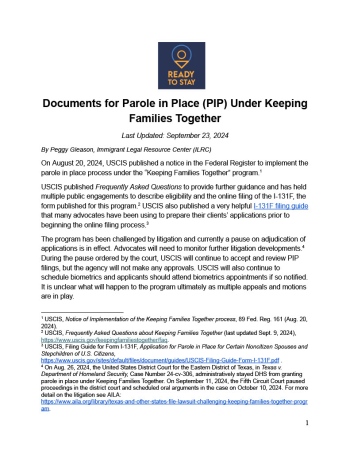
This advisory describes supporting documentation for the Parole in Place program under Keeping Families Together. The adjudications for this program are currently on pause due to litigation. Persons hoping to apply should the program resume may gather and prepare supporting documents in advance.
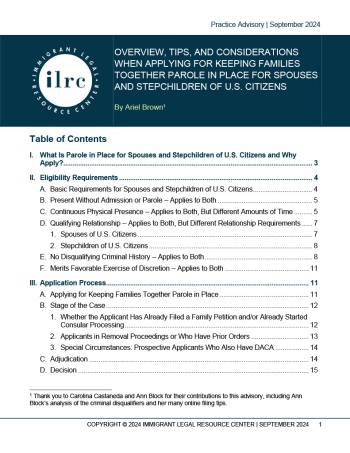
This practice advisory describes the new “Keeping Families Together” parole in place process for certain spouses and stepchildren of U.S. citizens including what exactly is it and what you get if approved. It also details the eligibility requirements and application process as well as addressing some of the more “in the weeds” issues such as if the USC spouse is deceased, common law marriages, the different presumptions that apply depending on the applicant’s criminal history or if they have an unexecuted final removal order, and what happens if the applicant has already started consular processing. Additionally, attached to this advisory is an appendix of online filing tips specific to the Form I-131F.
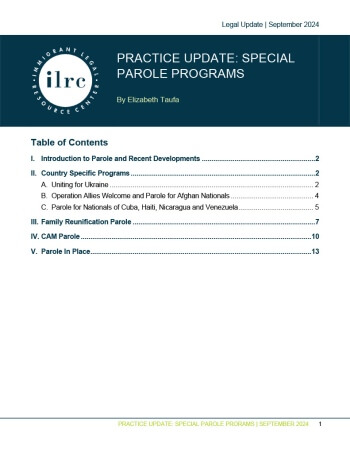
The advisory provides information and updates on various parole programs including Uniting for Ukraine, Operation Allies Welcome, CHNV Parole, Family Reunification Parole, CAM Parole, and Parole in Place.
